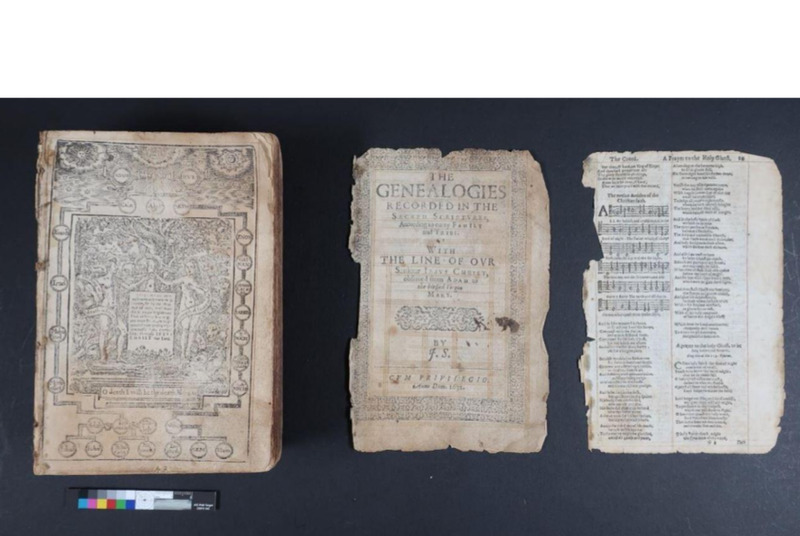A letter from Louise Donnithorne, reflecting on the Wicked Bible Project
If fortunate an opportunity might arise once in a lifetime to contribute to a world far larger than one’s own.
When I passed a scruffy little water-stained, broken-spined bookblock – the remains of what I believed to be a ‘Wicked Bible’ – into the hands of Associate Professor Chris Jones, I hoped he would confirm my belief and suggest what could be done with it. Since that first meeting, much has come about.
The book has been identified as one of a small number of Wicked Bibles known to have survived the vicissitudes of time and place. It is the only one of its kind to have been found in the southern hemisphere but who brought this bible to Aotearoa New Zealand remains a tantalising mystery. The bible has been placed on long-term loan with the University of Canterbury where its wellbeing and accessibility are overseen by Chris and the Macmillan Brown Library’s rare books librarian, Damian Cairns.
Thanks to the skill of book conservator Sarah Askey, the bible has been expertly and perceptively restored to a fully functional 1631 King James Bible. As such, it now has a life expectancy of a further five hundred years.
New Zealand Micrographic Services have created a world-class digital copy of this bible, the first of its type in the world. The bible and its digital copy have already received diverse and interesting scholarly attention. Students, currently, are investigating the process of printing this bible and where it fits into the context of the history of the bible.
Discussions are underway to find scholars who can forensically interrogate the detritus found within this bible. If we are lucky, such scholarship could determine where in the world it has travelled.
Mentors from the University of Canterbury’s Digital Arts Lab are helping students to design and build an open access online digital presence for this bible. Again, the first of its kind in the world.
The bible’s profile has benefited from Aotearoa New Zealand and international media coverage. Lectures, interviews and articles given and written by Chris have been viewed and read by a wide and appreciative audience. By publicising the presence in Aotearoa New Zealand of this bible, and allowing physical and digital access to it, I hope scholars from all walks of academia will find ways to question it and, in doing so, locate traces of its lost history.
Discovering aspects of the history of this bible may inform and encourage future research into the remaining Wicked Bibles, each of which passed, unchecked, through the hands of those men and possibly women employed by Robert Barker, the King’s Printer almost four hundred years ago.
Before this bible became a family possession, it was relegated to a garage floor where it lay forgotten among a pile of discarded old books. Since then, and under the aegis of the University of Canterbury and the watchful eye of Chris, it has been given a new life and has begun its journey back into the academic and biblical world in which it now belongs.
When I left Chris’s office having shown him my scruffy little bookblock, it never occurred to me that, within a few years, it would have found its way into a world far larger than my own. For that, I thank Chris for all he has done for this taonga.
Louise Donnithorne
January 2023
Off Macquarie Island, latitude 54° South

